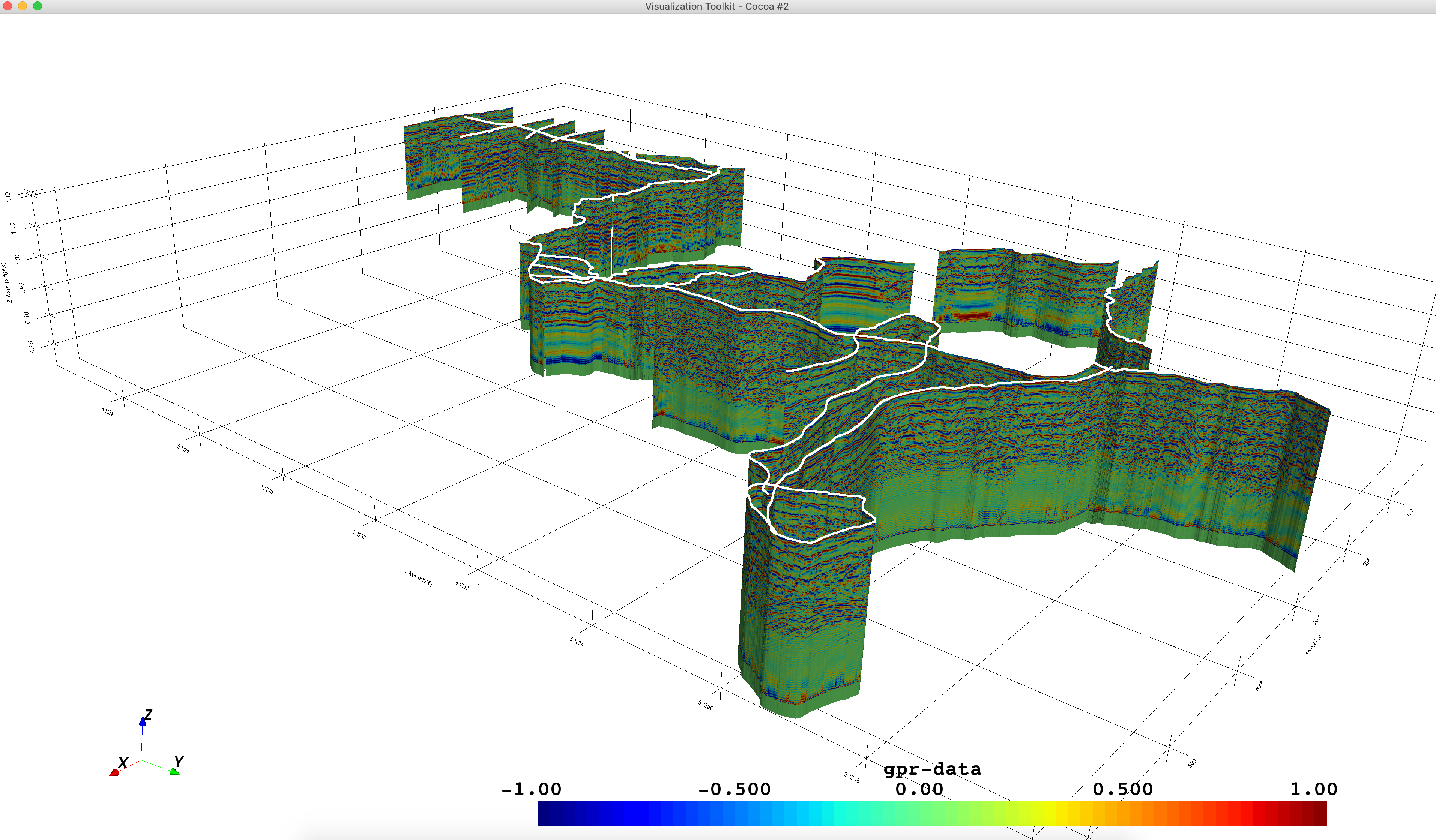Hello, there seems to be a problem when reading multi channel *.DZT files from a GSSI SIR4000 console, with a multi frequency antenna 300MHz/800MHz. It looks like in their header file they do not separate properly the info related to the different channels. It is already somehow buggy in the way it looks on RADAN.
...
--------------------WARNING - PLEASE READ---------------------
2021-02-08 08:10:30 - WARNING: could not read frequency for antenna name "'300/800D'"
2021-02-08 08:10:30 - WARNING: trying to use frequencies of None MHz (estimated)...
2021-02-08 08:10:30 - more info: rh_ant=['300/800D', 'none', None, None]
2021-02-08 08:10:30 - known_ant=[False, False, None, None]
2021-02-08 08:10:30 - please submit a bug report with this warning, the antenna name and frequency
2021-02-08 08:10:30 - at https://github.com/iannesbitt/readgssi/issues/new
2021-02-08 08:10:30 - or send via email to ian (dot) nesbitt (at) gmail (dot) com.
2021-02-08 08:10:30 - if possible, please attach a ZIP file with the offending DZT inside.
--------------------------------------------------------------
--------------------WARNING - PLEASE READ---------------------
2021-02-08 08:10:30 - WARNING: could not read frequency for antenna name "'none'"
2021-02-08 08:10:30 - WARNING: trying to use frequencies of None MHz (estimated)...
2021-02-08 08:10:30 - more info: rh_ant=['300/800D', 'none', None, None]
2021-02-08 08:10:30 - known_ant=[False, False, None, None]
2021-02-08 08:10:30 - please submit a bug report with this warning, the antenna name and frequency
2021-02-08 08:10:30 - at https://github.com/iannesbitt/readgssi/issues/new
2021-02-08 08:10:30 - or send via email to ian (dot) nesbitt (at) gmail (dot) com.
2021-02-08 08:10:30 - if possible, please attach a ZIP file with the offending DZT inside.
--------------------------------------------------------------
2021-02-08 08:10:30 - beginning processing for channel 0 (antenna 300/800D)
2021-02-08 08:10:30 - no gps information for distance normalization
Traceback (most recent call last):
File "/home/alex/.virtualenvs/gpr/bin/readgssi", line 8, in <module>
sys.exit(main())
File "/home/alex/.virtualenvs/gpr/lib/python3.8/site-packages/readgssi/readgssi.py", line 480, in main
readgssi(infile=infile, outfile=outfile, antfreq=antfreq, frmt=frmt, plotting=plotting, dpi=dpi,
File "/home/alex/.virtualenvs/gpr/lib/python3.8/site-packages/readgssi/readgssi.py", line 146, in readgssi
header, data[ar], gps = arrayops.distance_normalize(header=header, ar=data[ar], gps=gps,
File "/home/alex/.virtualenvs/gpr/lib/python3.8/site-packages/readgssi/arrayops.py", line 162, in distance_normalize
return header, proc, gps
UnboundLocalError: local variable 'proc' referenced before assignment
Sorry for bothering you with an issue which is probably related to a GSSI bug, and thank you again for your efforts!
Best,
Alessandro








